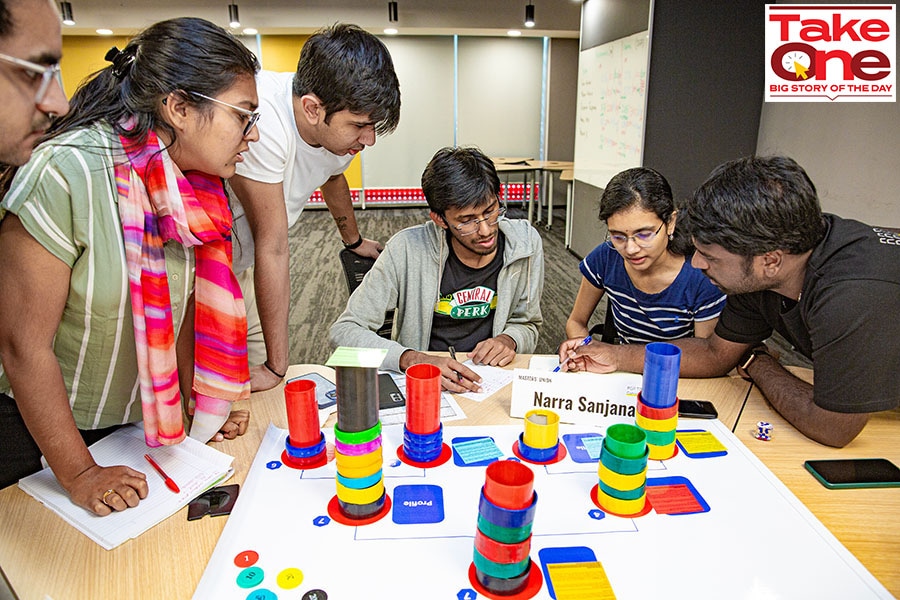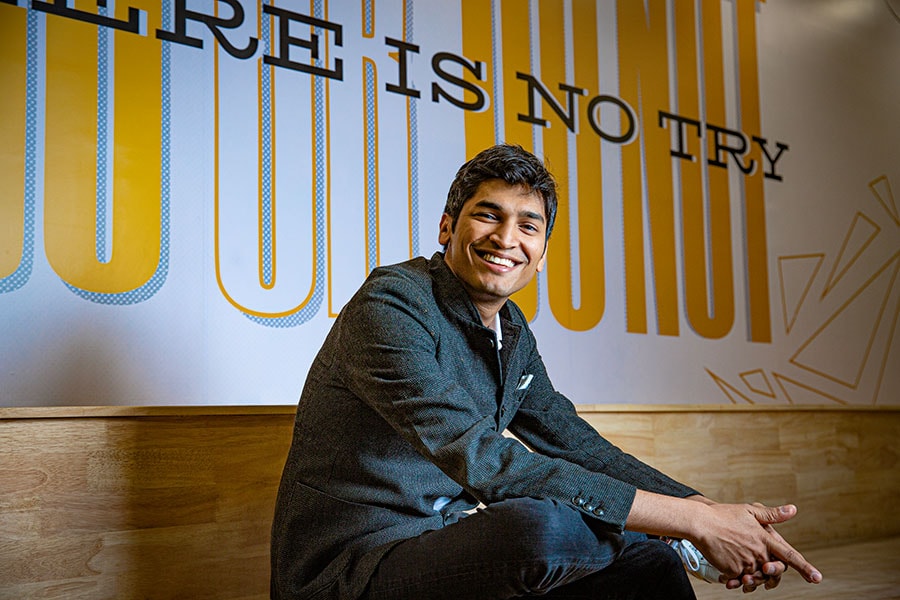
Can the experiential learning of Masters' Union be the Indian MBA alternative?
A new-age university gets students to build startups in class. Without a syllabus and textbooks, can experiential learning be the Indian MBA alternative?
 To attract students for its first batch, MU targeted individuals who wanted an international educational experience and scouted those taking the GMAT. Image: Madhu Kapparath
To attract students for its first batch, MU targeted individuals who wanted an international educational experience and scouted those taking the GMAT. Image: Madhu Kapparath
When one thinks of pursuing an MBA at an Indian institution, it's common to imagine a rigorous admission process, a demanding curriculum with strict project deadlines, and a high likelihood of securing a lucrative job post graduation. However, despite the reputation of India’s legacy colleges like the IIMs, India still falls behind in global college rankings.
QS World University Rankings for Business School has only two Indian universities—IIM-Ahmedabad at rank 51 and IIM-Bangalore at 61. Despite the growing demand and competitiveness of business courses in India, what are Indian colleges lacking? "Our legacy universities want to maintain just that—legacy. They do not alter the syllabus to keep up with the times because they have achieved their position and are not willing to look beyond their horizon," says Pratham Mittal, a 32-year-old entrepreneur, who after completing his schooling at Doon School in India, went to the University of Pennsylvania for his bachelor’s in systems engineering and political science followed by a degree in international relations at the London School of Economics.
At the University of Pennsylvania, Mittal was amazed at how some of the professors conducted their classes. “Professors at universities abroad have greater autonomy on how they conduct their classes. There were some subjects where teachers didn’t follow any textbook, but gave us practical projects and asked us to build startups. It was in these classes that we learnt the most and that has stayed with us even now,” Mittal reminisces.
_20220316022208_102x77.jpg)








